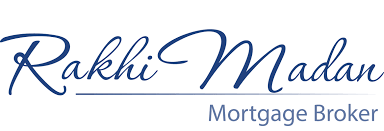During the last decade, homeowners in Brampton, Toronto and the GTA seldom faced higher rates when they renewed their mortgage. But as rates have steadily climbed over 2022, those with upcoming mortgage renewals are facing a new world of higher rates and higher payments.
When you renew with the same lender, your mortgage amortization doesn’t change. Your mortgage typically starts at 25 years, so after 5 years your amortization will be down to 20 years. With a fixed rate mortgage, you mortgage at renewal is smaller, but with your amortization now five years less, a higher renewal rate translates into higher payments. If you have an adjustable mortgage, you have been affected by each Bank of Canada rate increase, so you know exactly where you stand. If you have a static payment variable, your payments will likely be significantly higher at renewal.
So, what do you do? If you have a renewal coming up, don’t be too quick to just sign the renewal form and return it to your current lender, especially if your lender is encouraging you to go with a 5-year fixed rate. If you do, you won’t know if there is a better deal available in the marketplace, one that can save you money and improve your financial situation over the long run. Simply auto-renewing your mortgage and not getting the best discounted rates could cost you hundreds of dollars each month. Now more than ever be sure to get the best deal possible!
It’s a good idea to contact me for a conversation. I can review your situation and we can discuss whether any of these strategies make sense for you.
Make extra mortgage payments now. This is particularly important if you have a static payment variable. Chances are you will need to increase your payments whether you want to or not. Making extra payments can help build you a buffer and allow you adjust to a future of higher mortgage payments. Even if you don’t have an upcoming renewal, this is an important strategy for all homeowners.
Renew your fixed-rate mortgage early. If you have a fixed-rate mortgage and you want to be protected from further rising rates, you may want to explore the possibility of renewing early. Most lenders will let you renew your mortgage up to 6 months before it expires, penalty-free. Before this 6-month period, certain fees may apply. If you are choosing fixed so you don’t have to worry where rates are heading, it may be best to look shorter term and consider a 2-year fixed instead of the typical 5-year.
Consider a variable mortgage at renewal: Locking in for 5 years could be risky if we believe that rates will start to decline by 2024 (or hopefully earlier!). When prime decreases, your rate will be adjusted downward so you can benefit from rate declines as they happen. Locking in for 5 years keeps you at that rate for 5 full years. If you need to get out of your mortgage for whatever reason, you will also enjoy a significantly lower fee to get out of your variable mortgage compared to a fixed-rate mortgage. And at anytime variable-rate mortgages can be converted to a fixed rate should you want to do that.
Extend your amortization by refinancing (20% equity needed). If you are looking to extend your amortization to lower your payments, you can only do that by refinancing. When you refinance, you essentially exit your current mortgage and enter a new one that you must qualify for via the stress test. Unfortunately, if you need payment relief from a longer amortization, you may be in a situation where qualifying for a new mortgage at prime rates is not an easy task and we may need to look at other options.
The most common reason homeowners refinance is to access their accumulated equity to pay off high-interest debt when those high debt payments cause cash flow to become extremely tight. The interest rate on that debt becomes much lower and you get one manageable payment when all debts are rolled into the new mortgage. Your cash flow will get a boost and you may be able to put some of that away in an emergency savings fund. If you simply can’t afford all your debt payments, then consider this strategy and get the financial breathing room you need.
On the other hand, you could instead see opportunities in the current financial climate. You may want to refinance to access your equity for wealth-building opportunities like a rental property so you can take advantage of today’s rising rent situation.
Get in touch with your lender if you are having payment difficulties: If you feel you are really falling behind financially and making your mortgage payments is becoming very difficult, proactively reach out to your lender to discuss your options. They will be willing to collaborate with you to find solutions to keep your payments affordable. If inflation gets out of control like it did during the early 1980s, lenders are likely to come up with creative solutions to help you navigate the situation.
If you stay with your current lender and accept one of their renewal offers, you won’t need to be stress tested unless you refinance. If you want to move your mortgage to get a better deal but can’t pass the stress test, I can give you some tips on how to negotiate the best possible deal with your lender.
We’ve been fortunate to avoid rising mortgage rates for decades, but our easy ride has come to an end. If you can, start making additional mortgage payments to get accustomed to higher payments and save on interest. If things get out of hand, ask for help early and don’t wait till things really get difficult. Get in touch with your lender for possible solutions.
When it comes to your renewal, you are in a great position to make sure your mortgage meets your current needs, which is so important in our current world of economic change and uncertainty. I am available to assist you at anytime. Helping homeowners in Brampton, Toronto and the GTA is what I do! Contact me today.


